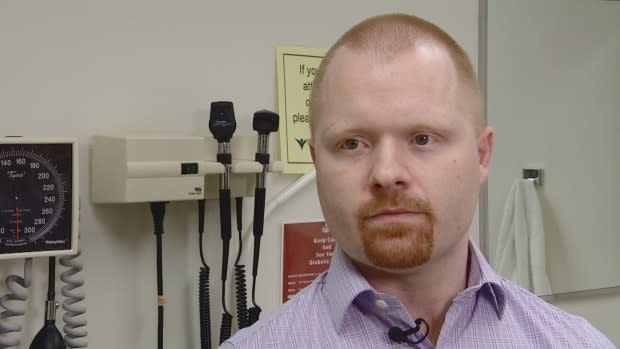How this doctor helped 35 Manitoba patients save $12K in a year
A family doctor working in southern Manitoba is helping his patients save thousands of dollars on prescription medications thanks to the work of local researchers — and he wants other physicians to do the same.
Dr. Daniel Hunt, who works in the city of Winkler and the nearby town of Carman, said he's saved 35 of his patients a total of $12,000 a year since he started using a drug price comparison list created by University of Manitoba researchers several years ago.
"There were giant price differences — like, tenfold price differences," said Hunt, who is based at the C.W. Wiebe clinic in Winkler, about 100 kilometres southwest of Winnipeg.
In 2017, a list of prices for commonly prescribed medications in Manitoba was created to help prescribers choose the most cost-effective medications that will work for their patients.
The list breaks down prescription drugs by their type, and shows prescribers what a 90-day supply of each drug would cost.
Before the list was available, prescribers had to call pharmacies to ask about drug prices.
Hunt started using it and noticed a big difference for his patients.

"What we're trying to do is bring down the unnecessary costs. For some drugs, they're more expensive and they're better. I don't want to switch people from those," he said.
"It's the drugs that are more expensive for no reason, where there's no benefit to the extra cost. We're trying to get people off of those ones and onto the equally effective but cheaper versions."
In an especially dramatic case, one of Hunt's patients was on three or four expensive medications. When he switched to cheaper alternatives, he saved $1,000 a year — without affecting his health status, Hunt said.
He said his patients have done well with the cheaper medications, though a few switched back if they felt their original prescriptions worked better or didn't have other side-effects.
Jamie Falk, a doctor of pharmacy and assistant professor at the University of Manitoba's college of pharmacy, developed the price comparison list with his colleague Shawn Bugden, another doctor of pharmacy who is now dean of the school of pharmacy at Memorial University of Newfoundland.
"We wanted to do this so that prescribers would be able to make cost a part of the decision-making process with patients," Falk said.
Many medications come in drug classes that include various drugs that act in a similar way, but despite similar effectiveness, prices can vary greatly.
Falk hopes use of the list will improve patient health outcomes.
There are cases where "it doesn't matter how effective something is, if the patient doesn't feel they can afford it, they're not going to take the medication," he said.
Taking cost into account
Hunt said prescribers prioritize the safety and effectiveness of a drug, which is important, while price isn't always part of their decision-making.
"In the wider medical community, it's still not something that's commonly talked about. If you go to conferences, there's not a lot on cost and how to mitigate that," he said.
Hunt is trying to get other medical practitioners to consult the list before prescribing.
So far, 20 patients seen by two doctors at his clinic agreed to try cheaper alternatives where possible, saving them roughly $4,000, Hunt said.
He also wants the government to give doctors an incentive to use the list and prescribe lower-cost medication, perhaps by capping Pharmacare coverage at the cost of the cheapest alternatives.
But clinicians don't have to wait for legislation to start saving their patients money, Hunt said.
"I think this can easily be done at the doctor-patient level," he said. "It just requires getting the word out."

Hunt hopes to get all the prescribers at the clinic where he works to use the medication price reference list, which he thinks could save the patients $126,000 per year.
"It just goes directly back in the [patient's] pocket, back into the community, and it can be spent on other things."
It's a practice Hunt says could easily be implemented everywhere.
This story was gathered as part of CBC's pop-up bureau in Morden and Winkler. Have a story idea? Email Rachel Bergen.


